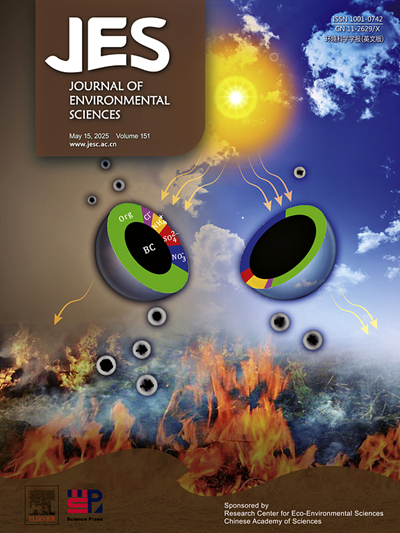碳中和航运之路:低碳技术的比较分析
IF 6.3
2区 环境科学与生态学
Q1 ENVIRONMENTAL SCIENCES
引用次数: 0
摘要
船舶运营对全球贸易至关重要,其脱碳对减缓气候变化至关重要。本研究使用平准化能源成本方法评估了海运中现有和新兴脱碳技术的经济可行性。它包括基于基本标准和敏感性评估的详细比较分析,以突出技术进步的经济影响。影响总成本的关键因素包括燃料成本、碳定价和碳捕获的能源需求。研究结果表明,假设重油价格为4400元/吨,当价格低于3000元/吨时,甲醇比重油更具成本效益。此外,甲醇与燃烧后的碳捕获比燃烧前的碳捕获更便宜。当碳价格高于480元/t时,碳捕集技术比购买重油和液化天然气的碳排放配额更具经济性。建议加强废气余热的利用,以节省成本。燃烧后碳捕获也显示出更高的效率,比燃烧前方法所需的能量少约1.1 GJ/t,从而降低了总成本。未来的研究应侧重于稳定燃料价格的市场机制,并开发能源密集度较低的碳捕获技术。本研究为促进当前和未来全球海上贸易的有效脱碳战略提供了重要见解。本文章由计算机程序翻译,如有差异,请以英文原文为准。

The path to carbon neutral shipping: A comparative analysis of low carbon technologies
Ship operations are crucial to global trade, and their decarbonization is essential to mitigate climate change. This study evaluates the economic viability of existing and emerging decarbonization technologies in maritime shipping using the levelized cost of energy methodology. It includes a detailed comparative analysis based on essential criteria and sensitivity assessments to highlight the economic impacts of technological advancements. Key factors influencing total costs include fuel costs, carbon pricing, and energy demands for carbon capture. The findings reveal that methanol is more cost-effective than heavy fuel oil (HFO) when priced below 3000 CNY/t, assuming HFO costs 4400 CNY/t. Additionally, methanol with post-combustion carbon capture is less expensive than pre-combustion carbon capture. When carbon prices rise above 480 CNY/t, carbon capture technologies prove more economical than purchasing carbon emission allowances for HFO and liquefied natural gas. Enhancing the use of exhaust gas waste heat is recommended for cost savings. Post-combustion carbon capture also shows greater efficiency, requiring about 1.1 GJ/t less energy than pre-combustion methods, leading to lower overall costs. Future research should focus on market mechanisms to stabilize fuel prices and develop less energy-intensive carbon capture technologies. This study offers critical insights into effective decarbonization strategies for advancing global maritime trade in the present and future.
求助全文
通过发布文献求助,成功后即可免费获取论文全文。
去求助
来源期刊

Journal of Environmental Sciences-china
环境科学-环境科学
CiteScore
13.70
自引率
0.00%
发文量
6354
审稿时长
2.6 months
期刊介绍:
The Journal of Environmental Sciences is an international journal started in 1989. The journal is devoted to publish original, peer-reviewed research papers on main aspects of environmental sciences, such as environmental chemistry, environmental biology, ecology, geosciences and environmental physics. Appropriate subjects include basic and applied research on atmospheric, terrestrial and aquatic environments, pollution control and abatement technology, conservation of natural resources, environmental health and toxicology. Announcements of international environmental science meetings and other recent information are also included.
 求助内容:
求助内容: 应助结果提醒方式:
应助结果提醒方式:


